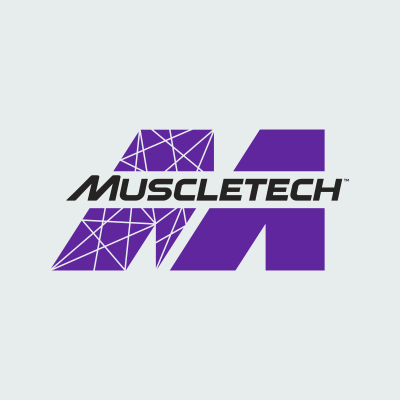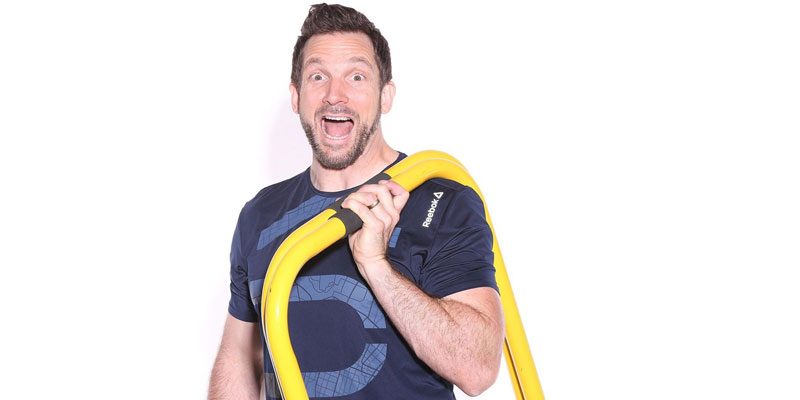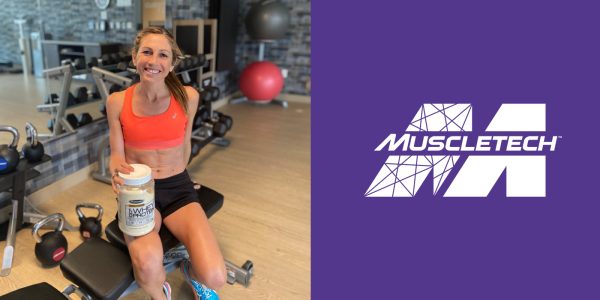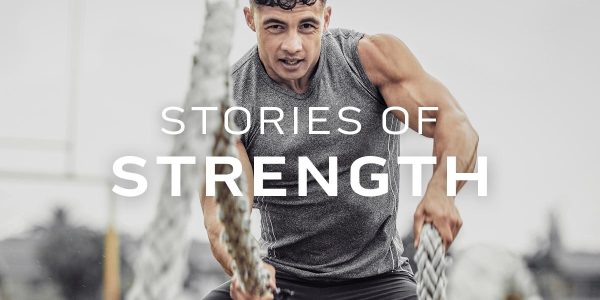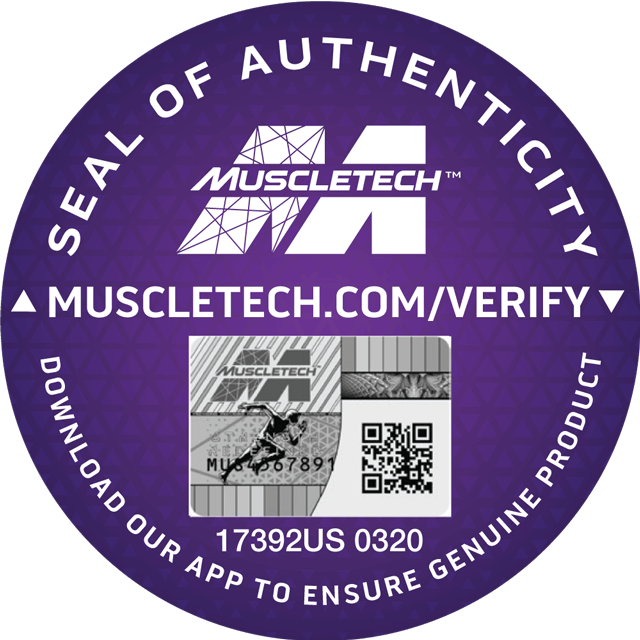Marc Lebert was doing an in-home personal training session with a client who wanted to do pull-ups in her home fitness studio, but didn’t have enough strength at the time based on where she was at in her fitness journey. So, he recommended she purchase a lat pulldown machine to assist her. When she said she didn’t want to buy one, he had a problem that needed to be solved. On his drive home that day, Marc came up with the idea for a portable pulling exercise that he could do with his clients in their homes, which led to him designing the EQualizer.
We had the opportunity to catch up with Marc Lebert, Founder and Chief Fitness Officer of Lebert Fitness, and David Faassen, President & COO to talk about what inspired Marc to start Lebert Fitness, creating products that are versatile and can be used by anyone from beginners to elite athletes, and advice for anyone looking to stay fit today.
Q: What inspired you to start Lebert Fitness?
Marc Lebert: It was simply I was doing a lot of in-home personal training, and one of my clients wanted to do pull-ups in her basement. She had a small studio, and I wasn’t convinced that pull-ups were appropriate for her at the time just because of her strength and where she was in her fitness journey. So, I said why don’t we buy a lat pulldown machine? She had money and she had space in her studio, but she didn’t want to do that. So, as I was driving home, inspiration hit me. I was like, I’m gonna just weld up my own little idea. So, I called my buddy in Hamilton, his name is Paul, and I just said, ‘Hey, I’m coming over. I’m bringing a case of beer,’ because that’s what a good Canadian boy does, and welded up my first EQualizer prototype. And I started testing them out with her, and a few other clients, and I thought, ‘I might have something here.’
Q: So basically the invention came from a problem, that you saw firsthand, and you said, ‘I need to come up with a solution for this.”
Marc Lebert: Absolutely.
David Faassen: Building on that, what I love is that it was not only inspired by a real-life problem, but then it was rigorously tested and honed. You know, we talk about how some of our biggest concerns are knock-offs who don’t design, they just copy – they don’t test or educate, they simply don’t care. With Marc, his thought process was based on solving a real issue that he saw in people’s fitness regimes, but then the countless iterations and the testing over how long? Like we continue, even now – 16, 17 years later – we’re tinkering with the products to always make them more effective and affordable. Think of it as almost a real-life lab that allowed Marc to find the right diameter of tubing, the right width, the right height, grips, everything else. So, it’s like a continuous improvement design philosophy.
Marc Lebert: Yeah, it’s funny because the very first EQualizers, I don’t even know if you know this, Dave. But it was just a ‘V’ with a pole and two open poles. So, it was a unibody, one of the first designs. And when you got under to do rows, your head would hit the pole behind you. So I’m like, ‘I gotta make two separate bars.’ And I did that, and then the ideas started churning. OK, we can do dips with this, we can go down and do agility work and those types of things. So, I guess it’s as the saying goes, ‘Necessity is the mother of all invention.’
Q: Lebert Fitness is known for having products that are versatile and can be used by anyone from beginners to elite athletes. So, why was it important for you to make sure that anyone can use your fitness tools, and not just elite athletes?
Marc Lebert: I trained everyone from absolute rank beginners to elite athletes, and for the most part, the exercises they did were the same. You would just change up methodologies in terms of how you would actually allocate the program. But I wanted everybody to get stronger. I wanted everybody to feel better. I wanted everybody to get results. So you could use the same tools. A medicine ball can be used with an absolute rank beginner or an elite athlete. It just depends on how you’re going to design the program for them. So, with EQualizers that was my thing. I don’t want to pigeonhole a product for a small segment. I want everybody to be able to use it and enjoy it.
David Faassen: In a nutshell, Marc wanted to make a product that was accessible to everybody, and help make fitness more accessible. That’s really what it comes down to. And the beauty of the product is that virtually every exercise that we can do on the EQualizer, you can do a regression where the least conditioned person can actually do it at a modified level or alternatively modify it so it becomes challenging even for elite athletes. that’s the beauty, it’s so versatile and effective that way.
Marc Lebert: Yeah, it’s really true. It’s all about fitness for all.
Q: One of the many great things about your products are that they can be used anywhere – whether it’s in a gym, or at home. That may be more important than ever in 2020 and moving forward. You talked about creating the product 16/17 years ago, did you have that in mind then?
Marc Lebert: That’s such a great question because what’s interesting in how I used to coach my clients is that for something to happen in the real world, it first has to happen in your head. And I always had this idea that, and it kind of kept me motivated because when times were tough, and there were a lot of tough times when you’re starting a company. I mean, yeah, I can tell you stories about calling my brother to come to the gas station and fill me up with twenty bucks. He was a trainer, as well, and he understood my dream. I always pictured my product being out there for anybody and everybody to use. And whenever I got frustrated, or, you know, times were tough, I would think about the dream, right? So, to answer your question, yeah, I did see it being everywhere. But not anywhere near as close to what it has turned out to be now, mostly because of the uptake from with the consumer in the home. When I started, I thought of it as a tool for trainers. I also owned a club, so, I was thinking more trainers and clubs, but I didn’t see it being quite the consumer product that it is now, which, is even more fulfilling that we are able to make a positive difference for so many people..
Q: Speaking of your product, can you take us through the Lebert EQualizer, the EQ, and its key features?
Marc Lebert: I think the starting point there, the key feature, would be that I designed the product so that there would be an element of movement so that it would provide immediate biofeedback. Because what I want people to do when they use the product is learn how to do the exercises properly. So, I could make the most super stable product ever and then they’re doing the exercises with a lot of internal rotation of the shoulders for example, and really not in the position to maximize their strength on let’s say a leg raise, or a dip, or even a push-up. So, having two single bars allows me to showcase that philosophy to trainers and to the consumers now. And the very first exercise was the row. So, I wanted my client to be able to get better at rows. And the rows turned into dips, which turned into incline push-ups, which turned into bringing the bar down into agility. So, a massive amount of creativity followed the initial design. And a lot of times, people just do the EQualizer as hurdles or dip bars. They see what I saw at first, but they don’t see all the other things you can do with it.
Q: How are you able to get the message across that there is so much more that you can do aside from the basics?
Marc Lebert: In the early days, it was just jumping around like a crazy squirrel on Red Bull at tradeshows, and just showing the different things people could do. I literally would be walking with them on my shoulders going through the tradeshow, and people would say, “Oh, are those hurdles?” And I’d stop right there and do a demo. I would do demos at Starbucks. I’d call all the trainers I knew in Toronto and say, ‘I’m here every Tuesday from 12 to 2,’ book appointments, and then do the demos right in a Starbucks. (Laughing)
David Faassen: But now we have a thousand different instructional videos. We’ve invested a ton of time and money in instructional videos for individual exercises or workouts on the website, on YouTube, and our private Facebook group. This is the part where we talk about an organizations commitment to their clients. Companies that really care about their clients success, aren’t put off by investing, and we’ve spent a lot of time and money, in the tools and aids to help educate, inspire and lead them to a healthier lifestyle. For example, the private Facebook group is very cool because we have a facilitator, and it’s basically free online coaching. You come and ask whatever questions you want. There are fitness challenges. We have an expert section with a naturopathic doctor, strength and condition coaches and trainers. You can ask whatever you want. That’s an organizational commitment, because we are trying to help people get healthier, and not just sell a piece of metal, or a piece of nylon, or whatever it is.
Marc Lebert: Selling fitness solutions.
Q: Marc, off of that, you being the one to do the demonstrations too. So, not only is this a product that you created, you’re also showing how it has impacted your life in a positive way. Can you speak to that a little bit?
Marc Lebert: Oh, wow. I guess I can take that in a lot of different ways. In terms of my fitness, I had no idea what bodyweight training was. I was old school, like lift weights and count reps. I had no idea how hard bodyweight training and calisthenics were. I starting using my products getting ready to compete on a national level in Taekwondo. So, for my fitness, they were very helpful. For me, I guess the rest of my life, my business, they’ve been very helpful in terms of taking a simple idea and a dream, and bringing it out there. It’s very fulfilling that way to be able to make an impact on the world of fitness.
Q: And then you created a new product, the HIIT System. Can you talk a little bit about why it’s such an important tool for fitness enthusiasts today?
Marc Lebert: Yeah, the HIIT System is an evolution of an older product we had. When David came onboard, we really wanted to breathe some new life into this product. So, we simplified it. The product is very simple, but like the EQualizer it has a ton of versatility. It can be used as a partner training tool, which is really cool, and keep people connected. It can be used as a suspension training tool. It’s primary design was to be a tool with a lot of a dynamic resistance that let’s you go crazy and push yourself from a cardio perspective but at the same time allows you to build great strength and increase mobility. It’s hard to actually just talk about it without seeing it and using it, feeling it. I go back and forth, do I love the EQualizer more or the HIIT System? It’s kind of changing from day-to-day.
David Faassen: I think the HIIT System is perfect for today’s world. It has an interesting twist, as it really does exactly what its name implies. It’s is high-intensity, builds muscular endurance, cardio, with strength slightly being second, but you can do strength, and it’s amazing for all aspects. It’s just as easy for modifications and mobility work too. I may like it best because I’ve got terrible knees and problematic back. Some mornings, the only way I can get down into a squat is using the HIIT system as an aid. This versatility opens it up to help an even greater range of people because it’s a dynamic resistance movement that allows you to train to your abilities. And the nice part about it is, aside from all that, it weighs around a pound and comes in a little sack. I take it to the park all the time. I’ve got one in the back of my car, and if I’m somewhere for an hour waiting for something, I just go to the park and hook it up to a tree or a bench. You can do it on your door at home, or you can do it around your bedpost, or you can do it around a tree, a bench. It’s just so versatile because it’s so light and portable.
Q: What advice do you have for anyone looking to stay fit, especially now given where the world is at this moment?
Marc Lebert: I would say my biggest message lately, especially with clients at the gym – we train outside at the moment, but a lot of them during the pandemic basically stopped everything. And then they come back four months later and they are just, they’re a mess, right? And I think sometimes people think that fitness has to be this formal, one-hour affair when in reality it could be a walk after dinner. You want to do some daily movement so that it adds up so that when you start to increase the intensity you have a nice base. It’s simple with the EQualizer, or the HIIT System, or even just some bodyweight, or anything really. Take five minutes every day and just do something. It’s really that simple.
I think even more than that it’s about mindset, and it’s about people, like everybody has time. It’s just that they sometimes aren’t motivated to actually do it. So, it’s spending some time with people and actually finding out, as a trainer, drilling down a little bit and peeling away some of the layers of the onion and finding out what it is they want to get out of this in the first place. Because once they know their why it’s easier for them everyday to just revisit that.
David Faassen: It really comes down to the mindset and then consistency from a physical perspective. You have good days, you have bad days, just do something every day and you will come out ahead. It’s really as simple as that. The mental aspect that allows you to do that though is the harder part. And it’s not about the surface answers – what’s the real underlying thing? For me, it’s because of my knees and back, I am terrified at being 70 years old and in a wheelchair. Simple as that. And that kind of all clicked in just a few months ago as a result of a conversation with Marc. I’m terrified. That’s my motivation. Then once you understand your true reason it almost becomes a bit of a warrior mindset, because it is a war. You can give up every day because when you’re hurting, and you’re tired, and you’re busy, and you don’t want to do it.’ But it is really a battle every day. You can think of it as a war for your own life.
Marc Lebert: If you don’t have something to align to, that you’ve actually thought about, and working with clients, they have to be honest with themselves, right. But it’s not what they usually say at first, which is, ‘I want to be healthier.’ That’s boring. Sure, we all want to be healthier, but what’s the real reason? What’s gonna make you do the exercise everyday? So, it’s just drilling down a bit. And it changes over the years.
Q: What has your experience been like working in the fitness space and how do you choose your partners?
Marc Lebert: Well, first of all, for the most part, working with companies in the fitness space, they’re usually altruistic. I mean, they want to help make the world a better place and help people get better. So, even though as David knows very well, sometimes working with fitness people is challenging as we can be flakes. I’ll take full responsibility for that. (Laughing) Because we’re used to working with people, not necessarily replying on time for an e-mail. (Laughing) But, yeah, our experience has been great. We’ve had some really great partners over the years.
David Faassen: It’s really values based because we know when we really started to articulate what we want to be as an organization then it became dead simple to see that mirrored, or not, in other organizations. And if it was, then we want to do business with you because you’re all about trying to help people. And there are different categories sometimes, like MuscleTech is in a different category, but their mission statement, their raison d’être, is the same. It’s about how you make somebody be a better version of themselves.
Stay tuned to Muscletech.com and Muscletech on social media platforms to learn more about Lebert Fitness, including opportunities to win their products.
